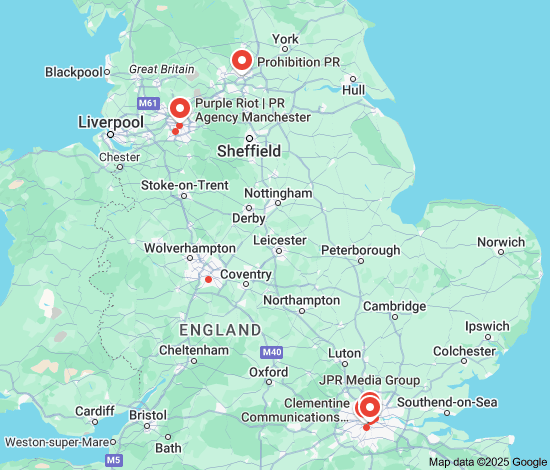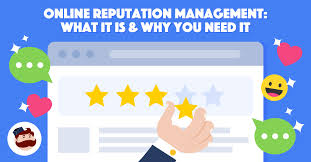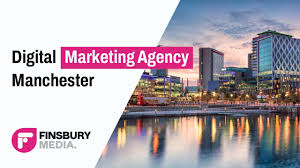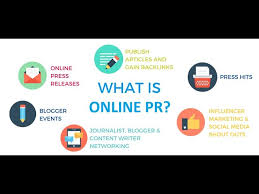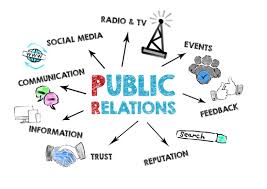Unlocking Success: The Power of Public Relations Consultancy in Building Strong Brands
The Role of Public Relations Consultancy in Building Strong Brands
Public relations consultancy plays a crucial role in helping businesses build and maintain strong brands in today’s competitive market. With the ever-increasing importance of reputation and perception, businesses are turning to PR professionals to craft compelling narratives, manage communication strategies, and engage with their target audience effectively.
One of the key functions of a public relations consultancy is to develop and implement strategic communication plans that align with the overall goals and objectives of a business. This involves identifying key messages, crafting stories that resonate with the target audience, and utilising various channels to reach stakeholders.
Public relations consultants also play a vital role in managing crisis communication. In times of adversity or negative publicity, PR professionals step in to mitigate damage, protect the brand’s reputation, and communicate transparently with the public. Their expertise in handling sensitive situations can make a significant difference in how a brand is perceived during challenging times.
Furthermore, public relations consultancy helps businesses establish thought leadership within their industry. By securing media coverage, arranging speaking engagements, and developing thought-provoking content, PR professionals can position their clients as experts in their field. This not only enhances credibility but also attracts new opportunities for growth and collaboration.
In today’s digital age, public relations consultancy has evolved to encompass online reputation management and social media engagement. PR professionals are adept at leveraging digital platforms to amplify brand messaging, engage with online communities, and monitor conversations about the brand. This proactive approach ensures that businesses stay relevant and responsive in an increasingly connected world.
Overall, public relations consultancy serves as a valuable partner for businesses looking to enhance their brand visibility, reputation, and engagement with stakeholders. By harnessing the expertise of PR professionals, businesses can navigate the complex communication landscape with confidence and build enduring relationships with their target audience.
Essential Tips for Effective Public Relations Consultancy
- Understand the client’s goals and objectives thoroughly before developing a PR strategy.
- Build and maintain strong relationships with media contacts to secure positive press coverage.
- Monitor industry trends and news to stay ahead of potential PR issues or opportunities.
- Create compelling storytelling that resonates with the target audience to enhance brand reputation.
- Regularly evaluate the effectiveness of PR campaigns through metrics and adjust strategies accordingly.
- Communicate transparently and timely with clients to ensure alignment on PR activities and outcomes.
Understand the client’s goals and objectives thoroughly before developing a PR strategy.
To ensure the effectiveness of a public relations consultancy, it is essential to thoroughly understand the client’s goals and objectives before crafting a PR strategy. By gaining a deep insight into what the client aims to achieve, PR professionals can tailor their communication plans to align with these overarching goals. This approach not only ensures that the PR strategy is targeted and impactful but also fosters a collaborative relationship between the consultancy and the client. Understanding the client’s aspirations allows PR professionals to deliver strategic solutions that are not only aligned with business objectives but also contribute to long-term success and brand growth.
Build and maintain strong relationships with media contacts to secure positive press coverage.
Building and maintaining strong relationships with media contacts is a fundamental tip in public relations consultancy. By nurturing these connections, PR professionals can effectively pitch stories, share relevant information, and engage with journalists to secure positive press coverage for their clients. Establishing trust and credibility with media contacts not only increases the likelihood of getting coverage but also ensures that the brand’s message is communicated accurately and positively to the target audience. Consistent communication and mutual respect are key in fostering long-lasting relationships that benefit both parties in achieving their communication goals.
Monitor industry trends and news to stay ahead of potential PR issues or opportunities.
Monitoring industry trends and news is a vital tip in public relations consultancy to proactively stay ahead of potential PR issues or opportunities. By keeping a close eye on developments within the industry, PR professionals can anticipate challenges, identify emerging topics of interest, and seize opportunities to position their clients strategically. This proactive approach not only helps in mitigating risks but also allows businesses to capitalise on trends and news to enhance their brand reputation and visibility effectively.
Create compelling storytelling that resonates with the target audience to enhance brand reputation.
Creating compelling storytelling that resonates with the target audience is a fundamental tip in public relations consultancy to enhance brand reputation. By crafting narratives that evoke emotion, spark interest, and align with the values of the audience, businesses can establish a meaningful connection that goes beyond mere promotion. Through storytelling, brands can humanise their message, build trust, and leave a lasting impression on consumers. This approach not only helps in shaping a positive brand perception but also fosters loyalty and engagement among the target audience, ultimately contributing to long-term brand success in the competitive market.
Regularly evaluate the effectiveness of PR campaigns through metrics and adjust strategies accordingly.
To ensure the success of public relations campaigns, it is essential to regularly evaluate their effectiveness through the analysis of metrics and data. By measuring key performance indicators such as media coverage, audience engagement, and brand sentiment, PR consultants can gain valuable insights into the impact of their strategies. This data-driven approach allows them to identify what is working well and what needs improvement, enabling them to adjust their tactics accordingly for optimal results. Regular evaluation and adjustment based on metrics not only enhance the efficiency of PR campaigns but also contribute to building stronger brands and more meaningful relationships with stakeholders.
Communicate transparently and timely with clients to ensure alignment on PR activities and outcomes.
Effective communication is key in the realm of public relations consultancy. By prioritising transparent and timely communication with clients, PR professionals can ensure alignment on PR activities and outcomes. Keeping clients informed at every stage of the process fosters trust and collaboration, enabling both parties to work towards shared goals effectively. Clear communication allows for feedback, adjustments, and a mutual understanding of expectations, ultimately leading to successful PR campaigns and strengthened client relationships.



